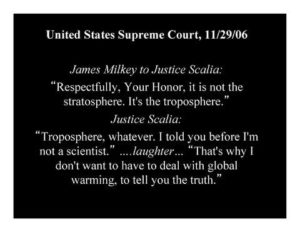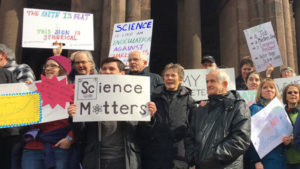The March for Science – by a U.S. Congressman, for one

 This past Saturday, Earth Day 2017, coincided with The March for Science, as you know. (Isn’t this official poster awesome? Also looks like a horse rearing up, kicking its front legs in the air!)
This past Saturday, Earth Day 2017, coincided with The March for Science, as you know. (Isn’t this official poster awesome? Also looks like a horse rearing up, kicking its front legs in the air!)
From the meetup.com #Resist: Baltimore website: “This Earth Day, join the effort to defend the vital public service role science plays in our communities and our world…
- Science serves all of us.
- It protects our air and water, preserves our planet, saves lives with medical treatments, creates new industries, puts food on our tables, educates the next generation, and safeguards our future.
- Science isn’t Democratic or Republican, liberal or conservative. Indeed, threats to science are pervasive throughout governments around the world.”
I’ve long held the view that there are more than enough lawyers planted in Congressional seats. We need diverse academic and work backgrounds to hope for governance in an enlightened fashion.
One example of this need is when former Supreme Court Justice Antonin Scalia declared:
 One non-lawyer is U.S. Congressman Bill Foster (D-IL). He’s the only physicist–a Ph.D–there. But, he speaks clearly. And, with even temper.
One non-lawyer is U.S. Congressman Bill Foster (D-IL). He’s the only physicist–a Ph.D–there. But, he speaks clearly. And, with even temper.
From his website: “Foster is a businessman as well as a scientist. He serves on the House Committee on Financial Services, a position he also held in the 110th and 111th Congress, and the Committee on Science, Space, and Technology.”
On Ira Flatow’s “Science Friday” show last week Foster opined that science is local rather than national. Just ask Jeanne Walton, a March for Science middle school teacher from York, PA, who “…worried about the effect of some current political rhetoric on her students. ‘I’m watching science being denied and undermined.'” (The Los Angeles Times, 4/23/17)
Following are excerpts from a recent opinion piece by Foster (linked here) at the Daily Herald‘s website. I’ve bullet-pointed ’em for easier reading:
- “As the only Ph.D. scientist in Congress, I am honored to take my perspective…to Washington and make thoughtful policy decisions based on facts [with] an obligation to speak out when our national policies deviate from sound scientific principles…
- “There is also little scientific doubt that global warming is being caused in large part by human activities.
- [This] can be understood by anyone who has walked outside on a clear night after a hot summer’s day: when you hold out your arms, you can feel the heat radiating from the still-hot ground as it cools off by radiating its heat out into space. Anyone who has felt this heat must realize that if mankind puts something into the atmosphere that blocks this heat from escaping, our Earth will have trouble cooling off at night and will gradually heat up.
- This is exactly the heat-trapping effect of greenhouse gasses like carbon dioxide and methane that scientists have been warning about for decades.” (Refer back to the Milkey-Scalia exchange quoted above.)
- [This] can be understood by anyone who has walked outside on a clear night after a hot summer’s day: when you hold out your arms, you can feel the heat radiating from the still-hot ground as it cools off by radiating its heat out into space. Anyone who has felt this heat must realize that if mankind puts something into the atmosphere that blocks this heat from escaping, our Earth will have trouble cooling off at night and will gradually heat up.
- “Our response to the approaching climate change disaster has also been clouded and delayed by politicians who deliberately exaggerate the uncertainty that is present in any scientific measurement.”
This is due, in my view, to the out-sized influence and deception “bought” by monied interests these days, i.e., think tanks, PACs, and lobbyist-furnished drafts of legislation along with financial bennies of every kind. (Read Oreskes and Conway’s Merchants of Doubt for a viewpoint.)
- “Scientists are trained to accept uncertainty as a necessary feature of any scientific result. We are cautious to claim any result is an absolute because statistical uncertainty is inherent in the scientific process.
- [While…] uncertainty remains, most experts believe that within the next 30 to 70 years we will begin to see very significant…then catastrophic, economic, and social consequences.
- In our everyday lives, uncertainty means not knowing.
- For scientists, however, it means uncertainty about how well something is known — not if it is known.”
Others are getting, or trying to get into the act. Linked here is a piece in Science magazine about a fly biologist making a bid for a U.S. Senate seat.
And, just for kicks: “What if every scientist and engineer in the U.S. marched?” How many would that be? See here.
Let’s get more of these types into governance leadership positions! (Lawyers staff up these public offices anyway.)

♠♥ Science Informs Sustainable Building and Low-Impact Development Design ♦♣